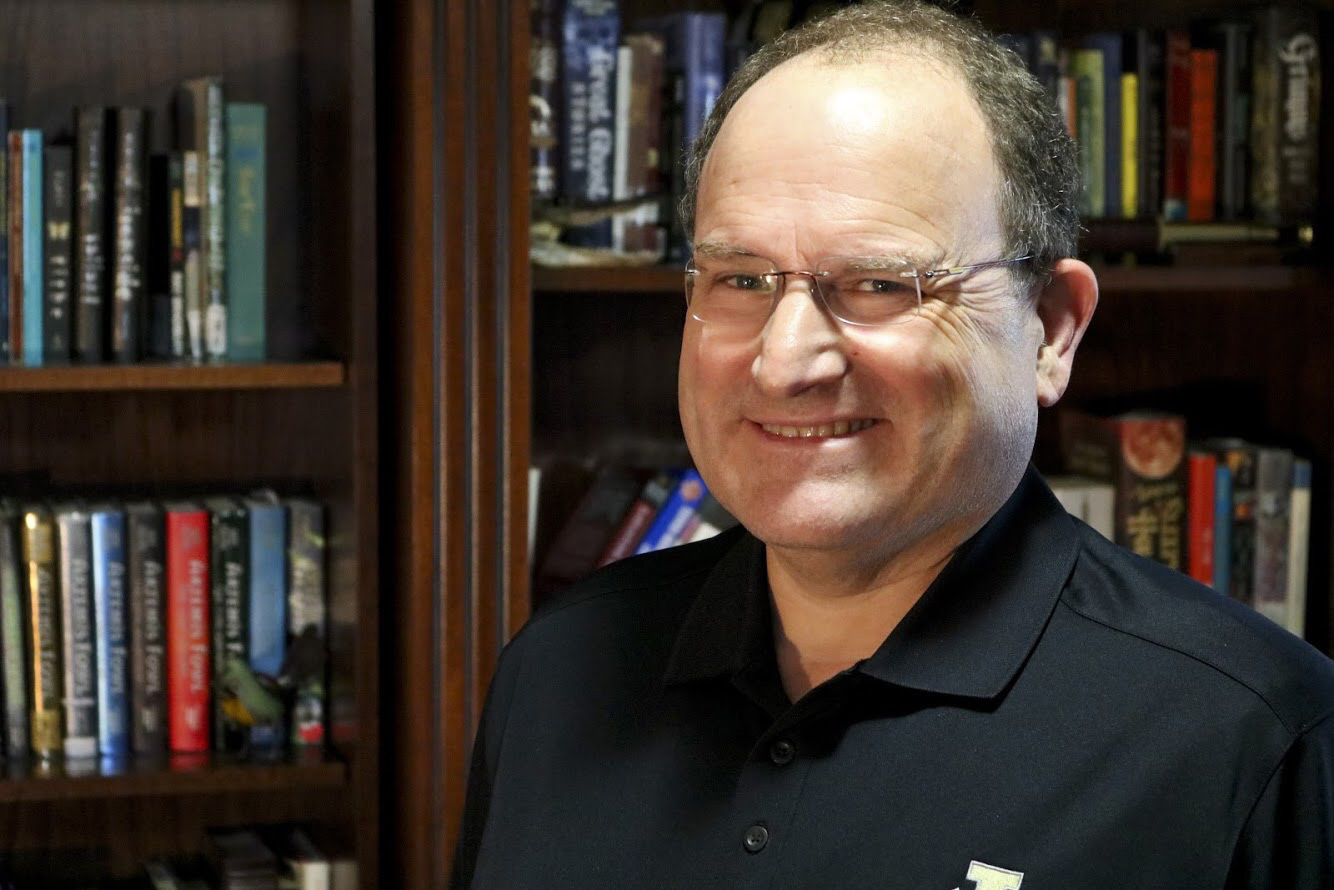Instructor Mike McKellar Brings Magical Touch to U of I Idaho Falls
Retired INL engineer joins research faculty at U of I’s Department of Nuclear Engineering.
For some people, the process of nuclear reactions, thermodynamics and chemical processes might as well be magic. The average person doesn’t understand how these processes can create energy that warms homes, cleans water or creates chemicals.
But Mike McKellar loves these systems and has the ability not only to understand them, but model them and find ways to make these processes more efficient.
For McKellar, the magic of engineering is what he loves. And it’s precisely his ability to understand complex processes that also makes him a successful performing magician.
“There are a lot of people that enjoy the sciences and who really enjoy magic as well. When you have a mathematical mind, you understand math and physics. There is a branch of magic where that gives you the advantage,” said McKellar, a research faculty member in the College of Engineering at the University of Idaho, Idaho Falls. “If you understand the math of magic, you can actually enter in to a realm that the magic actually looks impossible.”
Retired After 26 Years at INL
Originally from Utah, McKellar earned his bachelor’s degree in mechanical engineering from Brigham Young University and went on to get a master’s and doctorate in mechanical engineering from Purdue University in Indiana. In March 2017, McKellar retired after a 26-year career at Idaho National Laboratory, where he worked as a research and development engineer.
“The type of mechanical engineering I like is more chemical engineering. It’s more transfer of heat, the making of power, developing chemical processes,” he said. His specialty is modeling. “I take the heat from the nuclear reactor and either model the power that it makes, or I can model heat going to, for instance, water cleanup.”
McKellar then uses his models to find ways to make these complex processes more efficient and environmentally friendly. He’s interested in applying those principles to industries outside energy production, such as helping Idaho’s dairy and potato industries use water and energy more efficiently. He’s also working on the early stages of a project to help regional food manufacturers lessen their dependence on fossil fuels.
McKellar began teaching in the Department of Nuclear Engineering at U of I Idaho Falls in September 2017. He has always been passionate about education and has taught magic for years.
“I love teaching. I absolutely love the students that are in my class. I’m so impressed by how bright they are and how eager they are to learn and it’s just deeply satisfying,” he said. “They’ll come to me and they’ll ask me questions, and any time a student comes to my door, I try to give them the time that they need. That’s my favorite part of this job.”

“There are a lot of people that enjoy the sciences and who really enjoy magic as well. … If you understand the math of magic, you can actually enter in to a realm that the magic actually looks impossible.”Mike McKellar
The Art of Magic
McKellar’s interests occasionally collide when his students ask him to perform magic, such as at a family night for nuclear science students. McKellar is a member of the regional ring of the International Brotherhood of Magicians, which has about 15 members in southeast Idaho. He performs six or seven shows a month for area nonprofits and private parties. He doesn’t charge for his nonprofit shows and twice a year performs at the juvenile detention center.
“I’m a big fan of the art of magic. I like doing card magic and coin magic. I do some rope magic. I have linking metal rings,” he said. He’s also begun to learn mentalism, or mind-reading. “When you’re doing regular magic, people can pull their disbelief away, but they know that there might be a trick behind it. That’s fun. Mentalism, you start moving into a point where people start to ask questions that maybe there’s something beyond.”
But McKellar isn’t interested in being deceptive or spooky.
“I do assure everyone that everything I do, they can do too with years of practice,” he said. “Magic isn’t about fooling people. If it’s done right, it’s about bringing a sense of astonishment and wonder.”
McKellar, who earned the rank of Eagle Scout as a youth, has volunteered with the Boy Scouts of America Grand Teton Council for around 15 years, where he assists with training programs for adult leaders and youth members. He also serves on the board for the Mountain Falls Apartments project, which offers low-income housing for seniors.
“I do it because I feel it’s important to give back. Being involved in Scouting, I now have very close friends throughout southeast Idaho, people I can depend on,” McKellar said. “I guess I really enjoy it because the people I work with are just outstanding people and really make me a better person.”
Article by Savannah Tranchell, University Communications and Marketing.
Published in the May 2018 issue of Idaho Falls Magazine.







